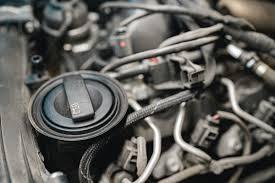BMW engines are known for their exceptional engineering, smooth driving experience, and long-lasting quality. However, even the strongest engines begin to show signs of wear over time due to mileage, age, and driving habits. When performance starts to drop or internal parts begin to fail, many owners choose a BMW engine rebuild instead of installing a brand-new engine. This option restores performance, improves reliability, and extends the lifespan of the vehicle—all at a significantly lower cost.
This comprehensive guide explains everything you need to know about the rebuild process, benefits, symptoms of engine damage, and what to expect in terms of cost and long-term performance.
What Is a BMW Engine Rebuild?
A BMW engine rebuild is a detailed restoration process in which the engine is disassembled, inspected, repaired, and rebuilt to factory standards. Instead of replacing the entire engine, mechanics focus on fixing worn or damaged components like pistons, rings, gaskets, bearings, and valves. The result is an engine that performs like new, often with improved reliability.
This process is especially beneficial for older models such as the N54, N55, B58, and V8 engines, which can develop internal wear after high mileage or aggressive driving.
Top Signs Your BMW Needs an Engine Rebuild
Identifying early symptoms can save you from complete engine failure. Here are the most common signs:
Excessive Exhaust Smoke
White, blue, or black smoke signals internal wear, such as worn piston rings, faulty valve seals, or a failing head gasket.
Loss of Power
If your BMW struggles to accelerate or feels sluggish, compression loss may be the cause.
Knocking or Ticking Sounds
Unusual noises often point to worn bearings or connecting rod issues—both of which require deep engine repair.
Overheating Problems
Chronic overheating can damage cylinders and head components, eventually requiring a full inspection or rebuild.
High Oil Consumption
If you’re topping up oil frequently, the engine may be burning oil internally due to damaged seals.
If you experience these issues, a BMW engine rebuild might be the most reliable solution.
Why a BMW Engine Rebuild Is Worth It
There are several strong reasons why BMW owners choose a rebuild over replacement:
Restores Factory-Level Performance
A rebuild brings the engine back to its original condition, improving horsepower, torque, and fuel efficiency.
Extends Engine Life
Replacing worn internal components gives your BMW many more years of dependable driving.
More Affordable Than a New Engine
A brand-new BMW engine can cost $8,000–$15,000+. A rebuild is usually less than half that cost.
Opportunity for Upgrades
Many owners add performance parts during the rebuild—stronger pistons, upgraded bearings, or improved cooling components.
A BMW engine rebuild is a long-term investment in the health and performance of your car, especially if you plan to keep it for years.
The Complete BMW Engine Rebuild Process
Rebuilding a BMW engine is a precise, multi-step job performed by experienced technicians. The process includes:
Initial Diagnosis
Mechanics scan the ECU, check compression, inspect oil, and examine the engine for visible damage.
Engine Removal
The engine is safely removed from the vehicle to allow full access.
Complete Disassembly
The block, head, pistons, crankshaft, camshafts, and all major components are dismantled and laid out for inspection.
Deep Cleaning
All parts are thoroughly cleaned using jet washers and solvents to remove sludge, carbon deposits, and debris.
Inspection and Measurement
Technicians use precision tools to measure tolerances and compare them to BMW specifications. Worn or damaged components are replaced.
Machining (If Needed)
Processes like cylinder honing, crankshaft polishing, and head resurfacing restore factory tolerances.
Reassembly
The engine is rebuilt using:
-
New gaskets and seals
-
New piston rings
-
New bearings
-
Updated timing components
-
Fresh fluids and filters
8. Testing and Tuning
Once reinstalled, the engine is tested for leaks, compression, performance, and idle stability. Tuning ensures the rebuilt engine matches BMW standards.
This complete process ensures the BMW engine rebuild delivers smooth, powerful, and reliable performance.
BMW Engines That Commonly Need Rebuilds
Some BMW engines are more prone to wear than others. These engines are often rebuilt:
-
N54 – famous for turbo issues and high oil consumption
-
N55 – common rod bearing wear
-
B58 – reliable but may need rebuild after high boost
-
N63 – overheating and oil burning issues
-
S65 (M3) – rod bearing wear
-
S55 (M4/M3) – crank hub problems
A skilled shop can perform a BMW engine rebuild on any of these engines and bring them back to optimal condition.
How Long Does a Rebuilt BMW Engine Last?
With proper maintenance, a rebuilt BMW engine can last 150,000 to 250,000+ miles. Key factors include:
-
Regular oil changes
-
Using high-quality engine oil
-
Monitoring temperatures
-
Avoiding hard driving for the first 500–1,000 miles
-
Timely maintenance of turbo systems, cooling systems, and ignition coils
Many owners report that rebuilt engines actually last longer than original ones due to upgraded parts.
Maintenance Tips After a Rebuild
Once your engine is rebuilt, follow these guidelines:
-
Use premium fuel only
-
Change oil every 5,000 miles
-
Avoid full throttle during the break-in period
-
Keep an eye on temperature and oil levels
-
Follow BMW’s recommended service schedule
These steps protect your investment and ensure long-term performance.
Conclusion
A BMW engine rebuild is one of the best ways to extend the life of your vehicle, restore lost power, and avoid the high cost of engine replacement. It is a smart, long-term solution for BMW owners who want reliability and performance without overspending. Whether you own a classic 3-Series or a modern turbocharged model, a professional rebuild can give your engine a fresh start and many more years of smooth driving.



